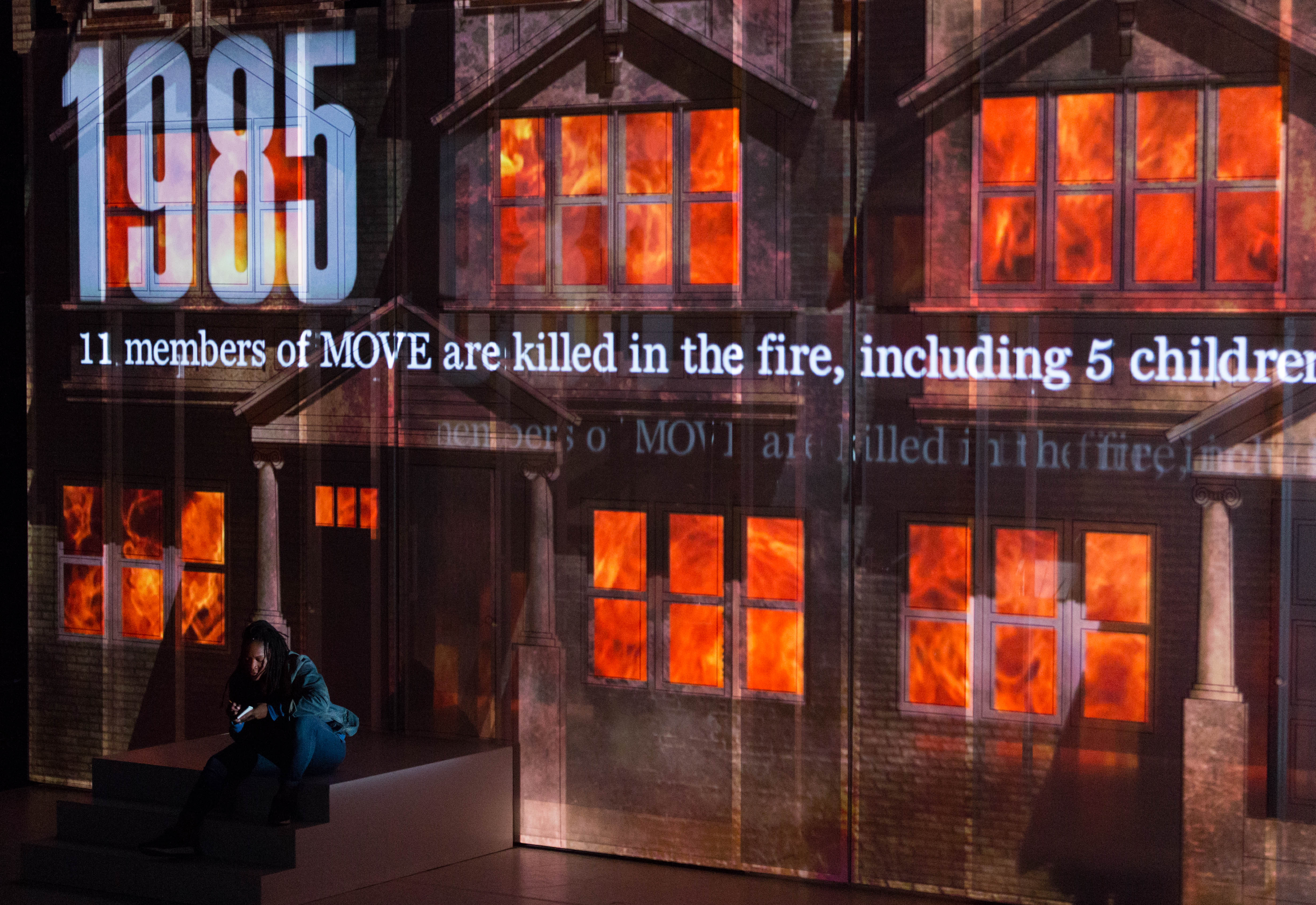We Shall Not Be Moved was composed by Daniel Bernard Roumain with a libretto by Marc Bamuthi Joseph, and directed by Bill T. Jones. The opera brings in musical signifiers from several genres while pointedly critiquing issues such as police brutality, the rights of transgender individuals, and structural racism within the US public education system. While the opera has not been taken on by another company since its premiere in 2017, it is an overlooked example of the possibilities illuminated by the frameworks and orientations of Black Opera as defined by Naomi André, and, I would argue, contemporary US opera more broadly.
The opera grew out of an Opera Philadelphia collaboration with a non-profit called Arts Sanctuary called "Hip H'Opera," initially launched in 2007. In the Hip H'Opera program, students "[learned] the history and aesthetics of hip-hop and opera . . . and then "[used] poetry, fiction, and non-fiction [to capture] their own urban stories." The second phase of the program used the students' writings as inspiration for the libretto of We Shall Not Be Moved.
Pictured: Production still, We Shall Not Be Moved.The opera centers on the experience of four teenagers, who refer to themselves as "the Family," dealing with the consequences of Philadelphia's 2014 public-school crisis, in which twenty-three schools shut down. After a violent altercation occurs when one of the family members is threatened with sexual assault and another prevents it, the family flees to the Osage Avenue site of the 1985 MOVE bombing. It is here that the second key event drawn from Philadelphia's history comes to bear upon the opera, that of the bombing, in which eleven members of the MOVE Black liberation group, including five children, were killed by a police helicopter that dropped explosives on the house to end a confrontation between the activists and police. The Family hides (unknowingly) in the site of the bombing, where, in taking refuge, they discover the house that remains is haunted by the ghosts (the OGs) that remain. The Family is pursued by a well-meaning policewoman from the neighborhood, and as a consequence of the encounter, the Family must contemplate greater violence to stay undetected. The opera ends ambiguously, with Officer Ramirez being interviewed by a local news reporter after being released by the Family, as the latter's fate remains unanswered. [Full synopsis here.]


Dr. Steigerwald, I feel like this blog post really created a clear picture in my mind of what it would be like to see the opera. The photos you chose also really add to the concept of the family. I think highlighting contemporary works like this that draw attention to events affecting people in real time is extremely important. I hope this opera gets performed more!
ReplyDelete- Laura Ruple